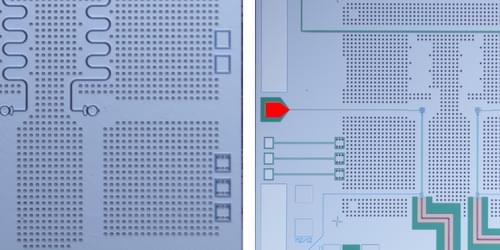A scalable system for controlling quantum bits demonstrates a very low error rate, which is essential for making practical devices.
A major obstacle to the development of practical quantum computers is the difficulty of scaling up—making a device with large numbers of quantum bits (qubits) that also gives accurate results in the presence of environmental noise. Now researchers report a significant improvement in the accuracy of a technology that is already known to be much easier to scale up than conventional techniques [1]. This alternative technology uses units of magnetic flux called flux quanta to control conventional superconducting qubits. The reduction in the error rate came from physically separating the control circuits from the qubits. With further refinement, the flux-quanta technology could provide a superior pathway to practical quantum computation.
Many current efforts to carry out quantum logic operations—the basic units of computation—use short microwave pulses to control the qubits. Currently, however, this technology is difficult to scale up beyond 1,000 qubits. But the presence of environmental noise requires error-correction methods that rely on large numbers of qubits, perhaps a million or more, for an effective error-correcting system that performs useful computations, according to some estimates.
